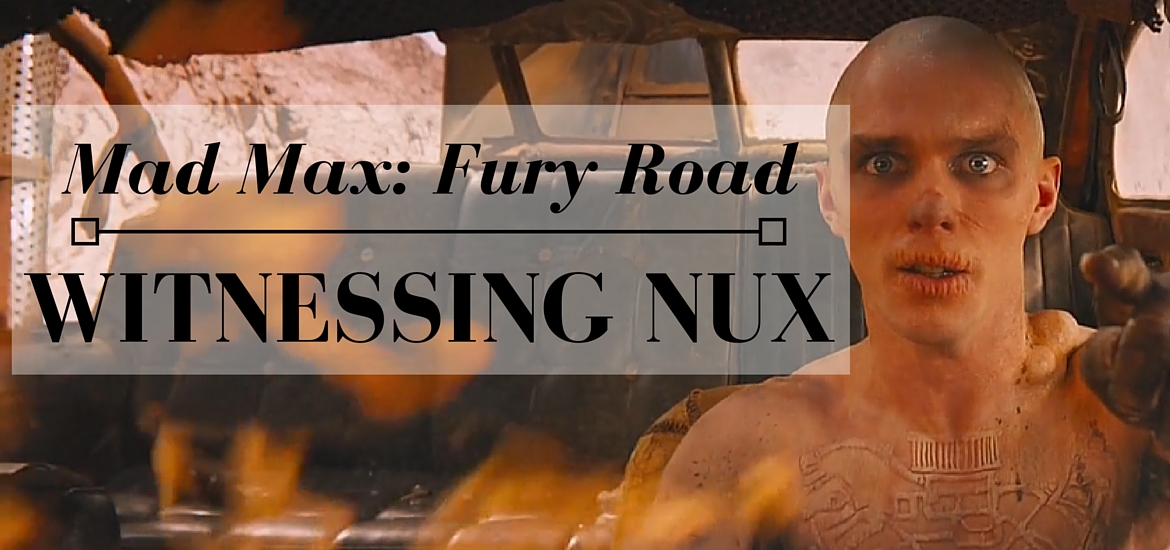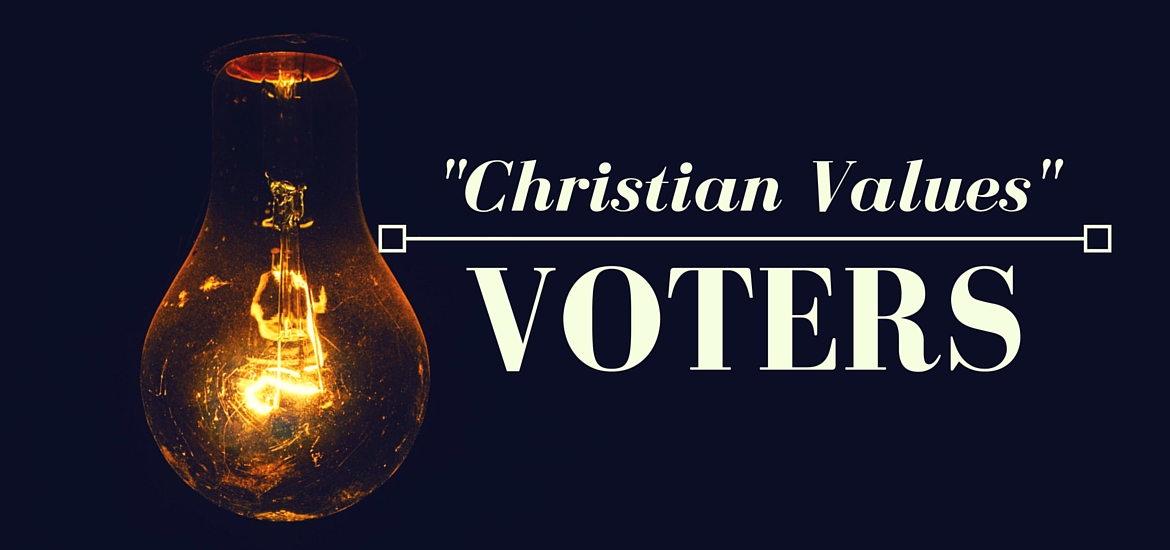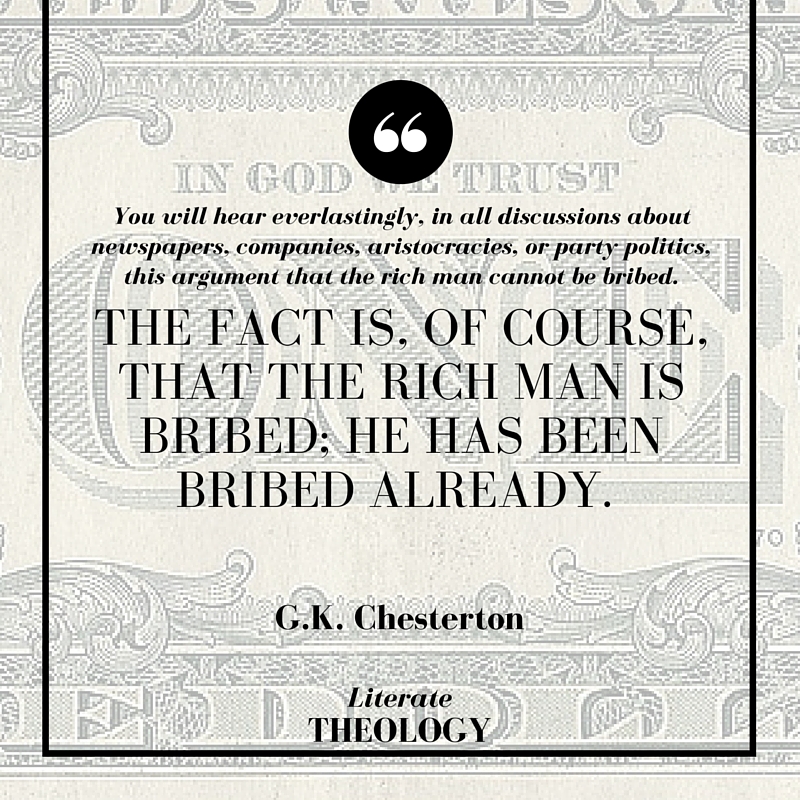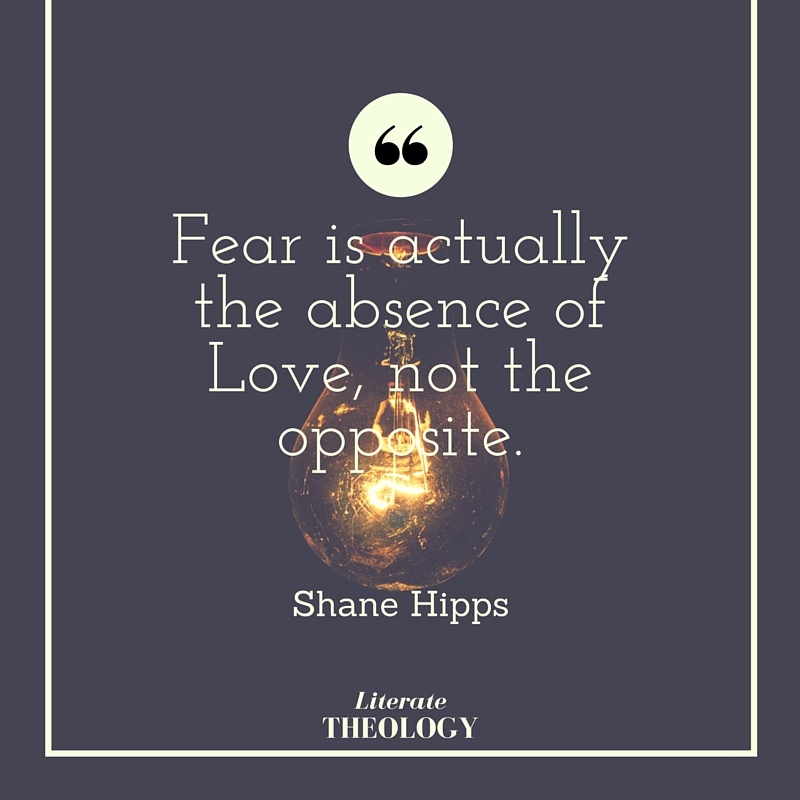We don’t talk about demons very often these days. I think that it’s one of the concepts we left behind in an effort to view ourselves as more advanced than our ancestors. We think it primitive to believe in spiritual forces that seek to destroy individuals and communities through possession. We hear, in scripture, about the man possessed by a “legion,” a regiment, of demons, and our first thought is: mental illness.
In today’s world, we’re much more likely to talk about ideologies and worldviews, about energies and forces. We talk about how they shape individuals and societies, how they have the power to become obsessions in some. We talk about how they can injure and harm. All of which sounds a bit … well, demonic.
In David James Duncan’s novel The Brothers K, there is a scene that I think reads like an interpretation of the possessed man whose demons drown in a lake. At the point we the story enter, teenaged Peter has just lied down under the sprinkler with his young twin sisters, Freddy and Bet. They’re contemplating the movement of forces in the world — what they call “humps of energy.”
“For instance,” Freddy says, “when a person gets mad at somebody…like when you get really mad and maybe slap somebody or jerk their arm or something, like Mama does to us sometimes, I think an invisible hump of energy might go flying all the way up their arm and right into their skeleton or insides or whatever — a hump of mean, witchy energy — and I think it might fly round and round in there…and go right on hurting invisible parts of the person you don’t even know you’re hurting, because you can’t see all the ways their insides are connected to the mean thing you did to their outside. And from then on, maybe that hump of mean energy sits inside the hurt person like a rattlesnake, just waiting in there. And someday, that energy might come out of them and hurt the next person too, even though the person didn’t deserve it.”
Peter responds, “I think that can happen, does happen. But every witch who ever lived was once just a person like you or me, that’s what I think anyway, till somewhere, sometime, they got hit by a big, mean hump of nasty energy themselves, and it shot inside them just like Freddy said, and crashed and smashed around, wrecking things in there, so that a witch was created. The thing is, though, I don’t think that first big jolt is ever the poor witch’s fault.” The sprinkler hissed.
“Another thing,” Peter said, “is that everybody gets jolted. You, me, before we die we’ll all get nailed —- lots of times. But that doesn’t mean we’ll all get turned into witches. You can’t avoid getting zapped, but you can avoid passing the mean energy on. That’s the challenging thing about witches — learning not to hit back, or hit somebody else, when they zap you. You can be like a river when a forest fire hits it– phshhhhhhhhhhhhhh! Just drown it, drown all the heat and let it wash away.”
“And the great thing,” he said, “the reason you can lay a river in the path of any sort of wildfire is that there’s not just rivers inside us, there’s a world in there. Christ says so. But I feel it sometimes too. I’ve felt how there’s a world, and rivers, and high mountains, whole ranges of mountains, in there. And there are lakes in those mountains — beautiful, pure, deep blue lakes. Thousands of them. Enough to wash away all the dirt and trouble and witchiness on earth.”
Bet’s mind had eased down into a place where hiss of sprinkler, splash of drops and babbling of brother were all just soothing sensations. But Freddy was still watching Peter’s face when he said, “But to believe in them! To believe enough to remember them. That’s where we blow it! Mountain lakes? In me? Naw! Jesus says The kingdom of heaven is within you, and we dream up something after death. Something truly heavenly, something with mountains higher than St Helens or Hood and lakes purer and deeper than any on earth — we never look for such things inside us… So when the humps of witchiness come at us, we’ve got nowhere to go, and just get hurt, or get mad, or pass them on and hurt somebody else. But if you want to stop the witchiness, if you want to put out the fires, you can do it. You can do it if you just remember to crawl, right while you’re burning, to drag yourself clear up into those mountains inside you, and on down into those cool, pure lakes.”
We don’t know much about the demons — the energies — of the Gerasene community, where the demon-possessed man was driven from. We don’t know how they came to possess this man, why they chose him, what type of evil they’re about. We only get to hear that they are many — a legion, a regiment. And they have converged in this one body, this one man.
There are many demons in our own culture, whose names we are might know: Homophobia. Transphobia. Islamophobia. Racism. Sexism. Nationalism. Ethnocentrism. Just to name a few. Demons that too often converge to possess one person. They unite under the banners of hatred and fear for the purpose of doing violence and spreading evil.
And then there are the lesser demons: Indifference. Apathy. They may not participate in violence directly, but they compel those they possess to do nothing to stop violence.
Like Freddy said in The Brothers K, sometimes demons come to possess a person when violence is done to them. Last week, the violence that was done extended well beyond the walls of Pulse, well beyond the city limits of Orlando. Many of us felt the impact of the attack — knew that this hatred was directed, in a way, at us. Knew the energy was spreading out across the country. The week before, the anonymous survivor in Stanford named the ways that violence entered her life and chipped away at normalcy. Part of its viral spread was due to the fact that so many women have had similar experiences with those demons.
It seems we are possessed.
And that demon might sit in us, like a rattlesnake waiting to attack the next person. Or we find someone to bear our collective witchy energy, to become our witch, our scapegoat. Theologian and activist Walter Wink says that is what the Gerasene culture has done to the unnamed man. They chain him in such a way that he can break free so they can enact their cycle of drama — catch, escape, injury; catch, escape, injury. Wink says, the townspeople need him to act out their own violence. He bears their collective madness personally, releasing them from its symptoms. He secretly lives out the freedom to be violent that they crave. And he is more miserable for it, and the insure that he remains so.
Last week, people heatedly debated the motives of the massacre at Pulse in Orlando. Homophobia or racism? Religion or mental illness? But there are no easy answers; the name is Legion. Last week, Legion lived in Omar Mateen. The week before, we recognized Legion in Brock Turner. Last year, it was Dylann Roof.
I don’t know what formed these men, what moments — to borrow David James Duncan’s language — what moments caused energy to crash and smash around and wreck things in them. But I do believe they weren’t born so full of hate — hatred came to possess them.
Their actions have, in turn, sent out witchy energy — energy that no one deserved. Energy that crashes around, that possesses, that maims.
The demons are not to be confused with the one who is possessed by the demons.
Like the Gerasene townspeople, our larger culture participates in violent energies. These men bear the collective madness of our society — they internalize and embody our culture’s collective homophobia and racism, sexism and entitlement. When they turn violent, our culture, perhaps, experiences a vicarious release through the actions of the possessed one even as we hate the possessed one.
The good news in our gospel text today is that we don’t have to keep participating in the cycle of fear, hatred, and violence. We can find, in ourselves, those pure, deep blue lakes, and we send the demons down the banks and into their depths. Like Peter said, you can’t avoid getting nailed, but you can avoid passing the mean energy on. We have our model in the Holy Crucified One — we know that refusing to pass on the mean energy opens up the possibility of new life. But we have to know our inner terrain, we have to find the lakes.
In the last ten days, I have been brought to tears — with grief, yes, but more often with awe. I have watched people climb their inner mountains and drown hatred and fear in their lakes — sometimes in ways that are so creative and public that it feels like their lake pours out from them.
I see the demon energies die in vigils. I see them drown when Orlando costume designers volunteered to create tall, opaque angel wings for people to wear outside the victims’ funerals to create a safe space inside. In the names of the victims written on the sidewalk in downtown Seattle. In long lines of those privileged enough to give blood. In a spontaneous song outburst on a West Seattle bus of “What the World Needs Now (is Love Sweet Love)”.
It is something truly heavenly. And it is within us.
In the comments…
Where do you see lakes pour out and drown hatred?
What practices help you find your inner lakes?
Thanks for reading!
If you liked what you read here, sign up for once-a-week updates on the blog. More connections between scripture, literature, and life, delivered right to your inbox.

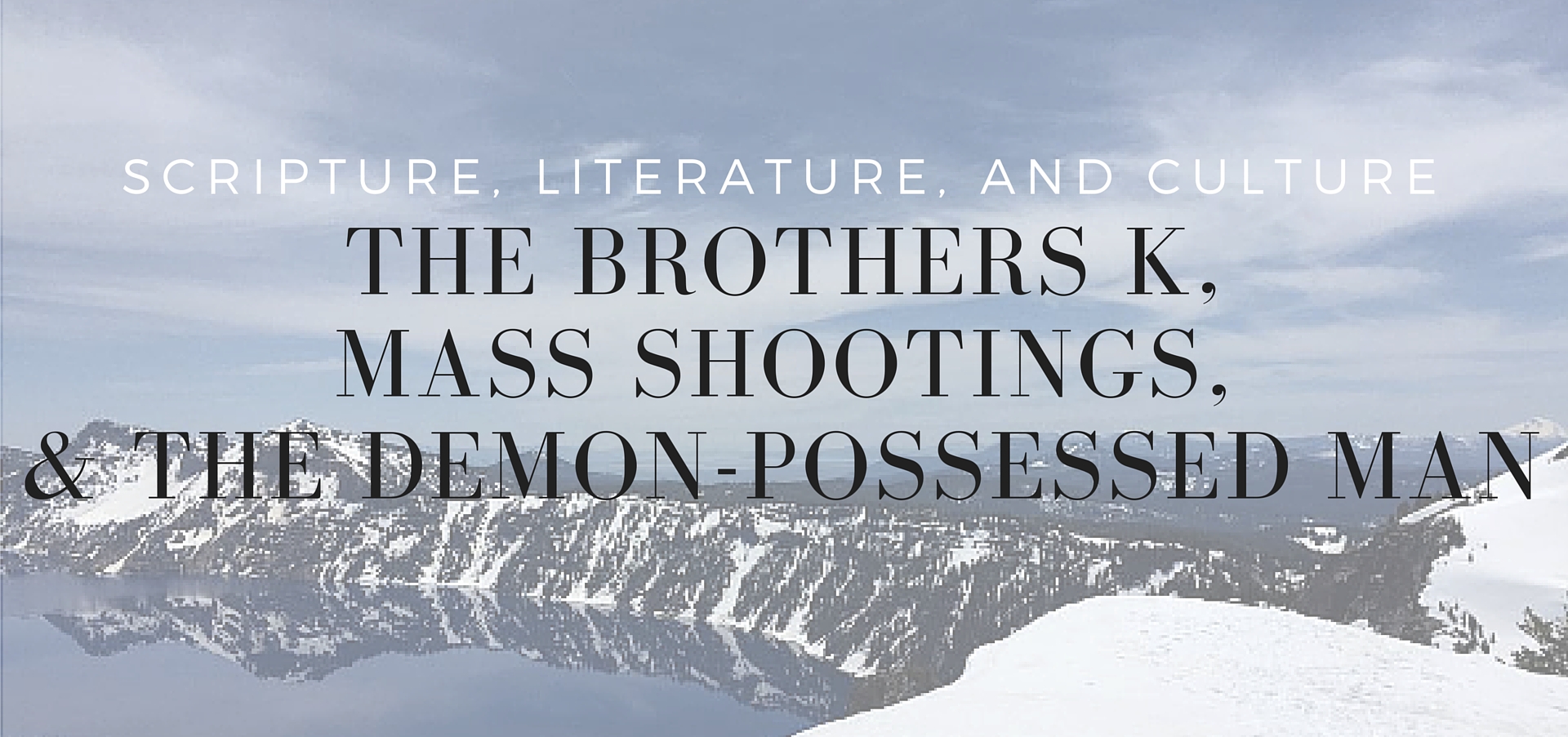
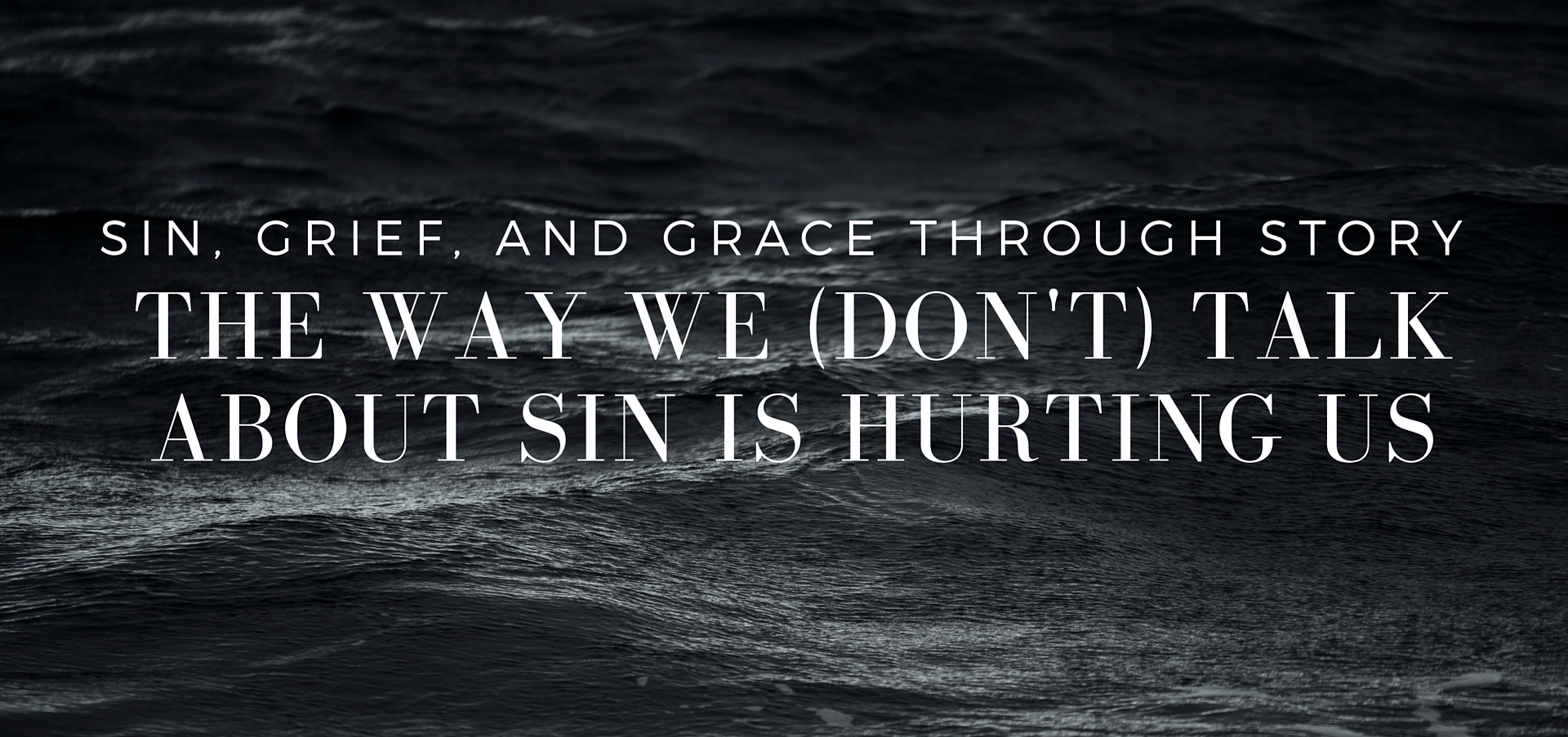
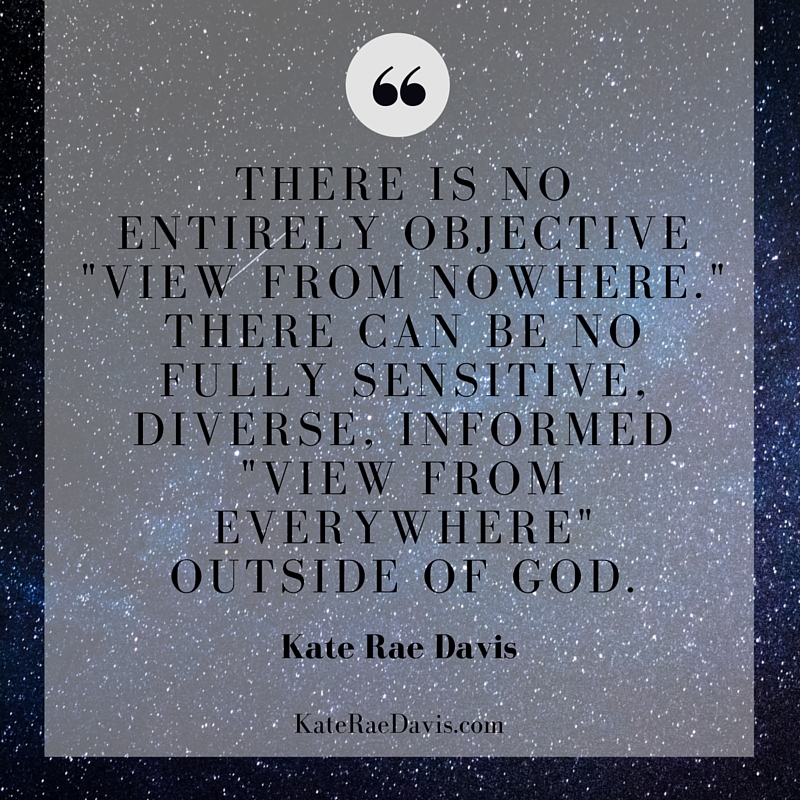 Whenever salvation or grace is preached, what is implicit is the notion of salvation from a state of being, or grace with regards to a tendency. The word ‘sin’ may not be used, but its presence is assumed when we use the words like salvation, redemption, and grace.
Whenever salvation or grace is preached, what is implicit is the notion of salvation from a state of being, or grace with regards to a tendency. The word ‘sin’ may not be used, but its presence is assumed when we use the words like salvation, redemption, and grace.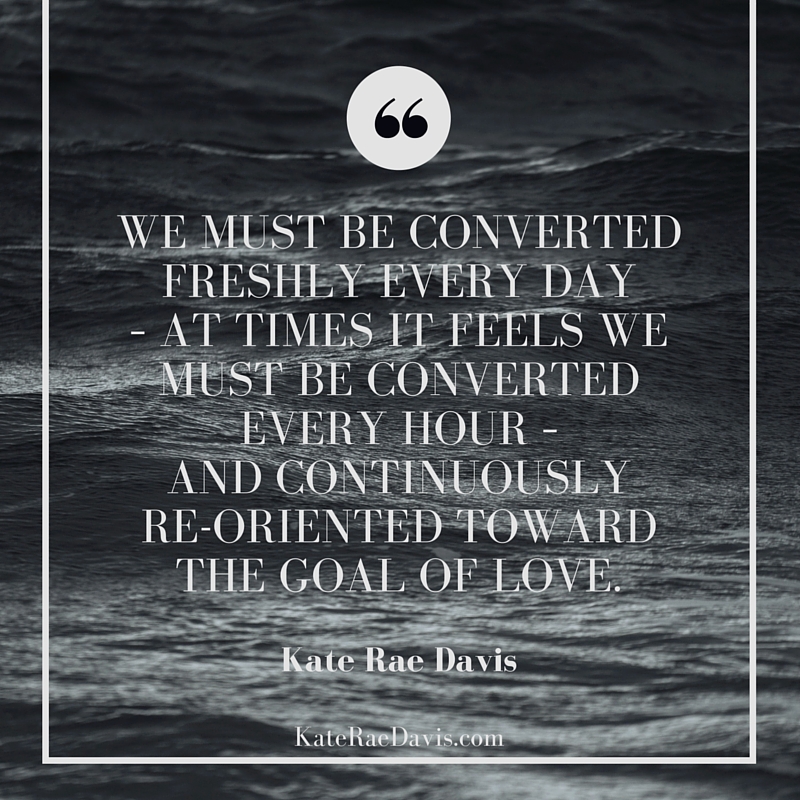 It is not enough to be converted to a new way of life once. We must be converted freshly every day – at times it feels we must be converted every hour – and continuously re-oriented toward the goal. The goal, by the way, is love of God and neighbor.
It is not enough to be converted to a new way of life once. We must be converted freshly every day – at times it feels we must be converted every hour – and continuously re-oriented toward the goal. The goal, by the way, is love of God and neighbor.